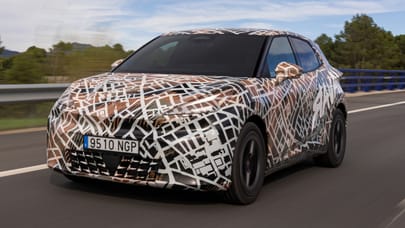
New rules state public charge points must have 99 per cent reliability
Department for Transport responds to vocal criticism of public EV charging infrastructure
New regulations mandate that the UK's public charge points need to have a 99 per cent reliability record on average. The measures come in response to a wave of criticism citing inoperability, faffy form-filling and non-standardised payment methods.
The new Public Charge Point Regulations 2023 – added under the Automated and Electric Vehicles Act 2018 – cite a raft of criteria charge point operators (CPOs) must comply with to avoid hefty fines and help EV drivers have a better public charging experience.
Most notably is the reliability record. The legislation stipulates when and how the reports, self-submitted by operators, will be filed. Every calendar year, operators need to show the devices on their networks have an almost perfect average. If they fail, after repeated notices to conform, they could face a fine upwards of £10,000, climbing to £250,000 in certain cases. Ouch.
There's also a provision for a manned helpline, staffed 24/7 to assist EV drivers who are having difficulties with a device.
Operators are expected to provide a means of contactless card payment – retrofitting old devices if needs be – but that’s been the case since 2019. Now CPOs must enable customers to pay via a third-party platform, such as Gireve, Monta and Zap-Pay. Such a facility should simplify the payment mechanism to a one-stop shop for EV drivers.
Though the measures are due to come into force in the next few weeks, CPOs will have a year’s grace to get their ducks in a row – two in the case of enabling a third-party payment roaming mechanism.
New laws might help foster trust in the UK's EV infrastructure, but public charging operators for electric cars (EVs) aren’t satisfied. The regs cite a bunch of things CPOs arguably already do and enforcement hasn't just been pushed out for 12 months – those big fines seem to be a last resort after plenty of polite requests.
EV evangelists also say that the picture being painted of the UK’s EV public charging infrastructure is an outdated one. Ian Johnston, CEO of Osprey Charging, has told TG.com comments from influential sources in recent media reports are ‘disproportionately damaging’.
“The first thing is, no one is saying the public charging network is perfect. No one’s saying there are sufficient public charging points. But the progress that’s been made, even in the last six months since Christmas, is staggering.
“It’s not just that we’re getting more [charge points], we’re getting brilliant new installations every week. Across the spectrum – overnight, on-street and rapid – charging is reliable, it’s easy-to-use, it’s easy-to-pay, it’s professionally run.”
Top Gear
Newsletter
Thank you for subscribing to our newsletter. Look out for your regular round-up of news, reviews and offers in your inbox.
Get all the latest news, reviews and exclusives, direct to your inbox.
Johnston states that it’s not in operators’ interests to be falling short of customer expectation, since competition between the brands – Osprey, Ionity, Gridserve, etc – is fierce. He said, “If a driver has a bad experience with our chargers, we know they won’t come back. It’s pushing the bar for reliability and usability so much higher.”
Could it be that market competition is already bringing the results these regulations are looking to achieve?
Trending this week
- Long Term Review
Life with a 500bhp BMW 550e: do you really need an M5?








